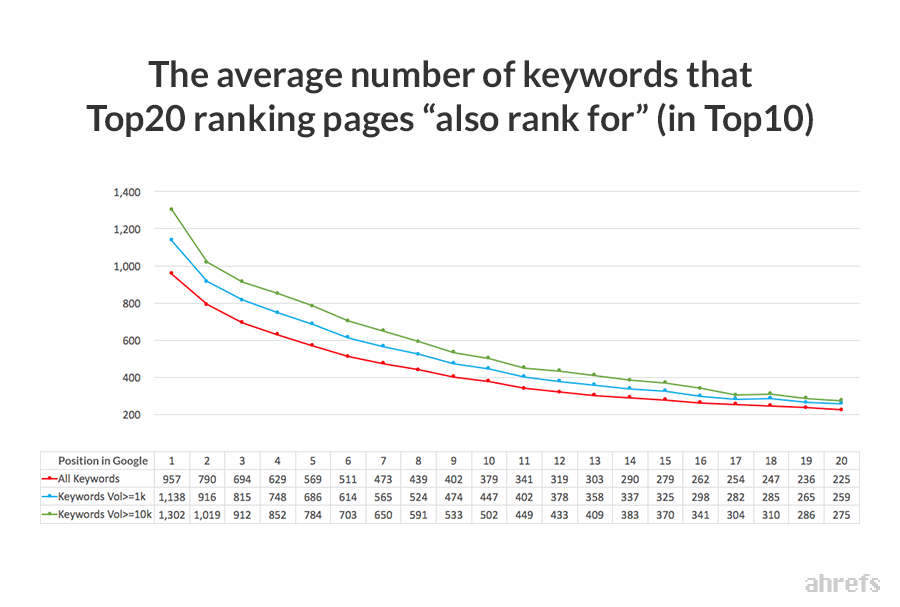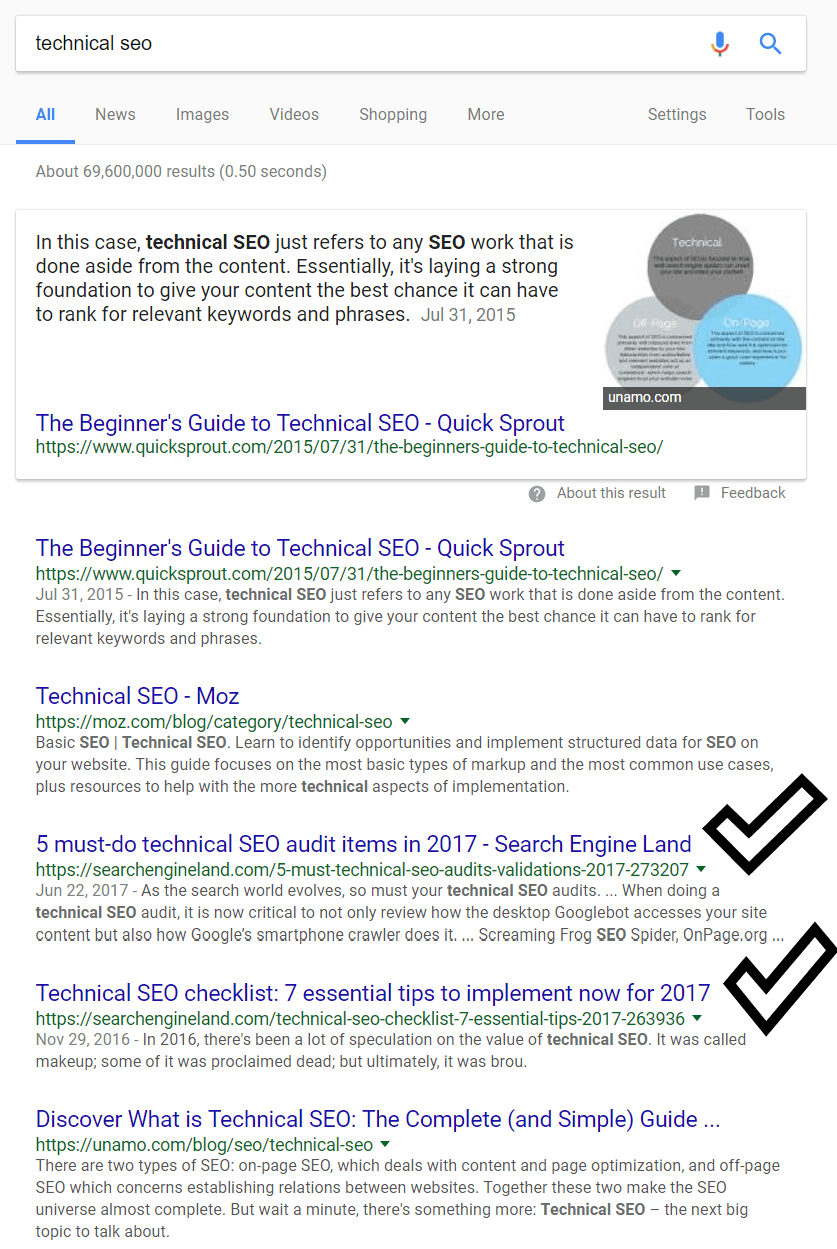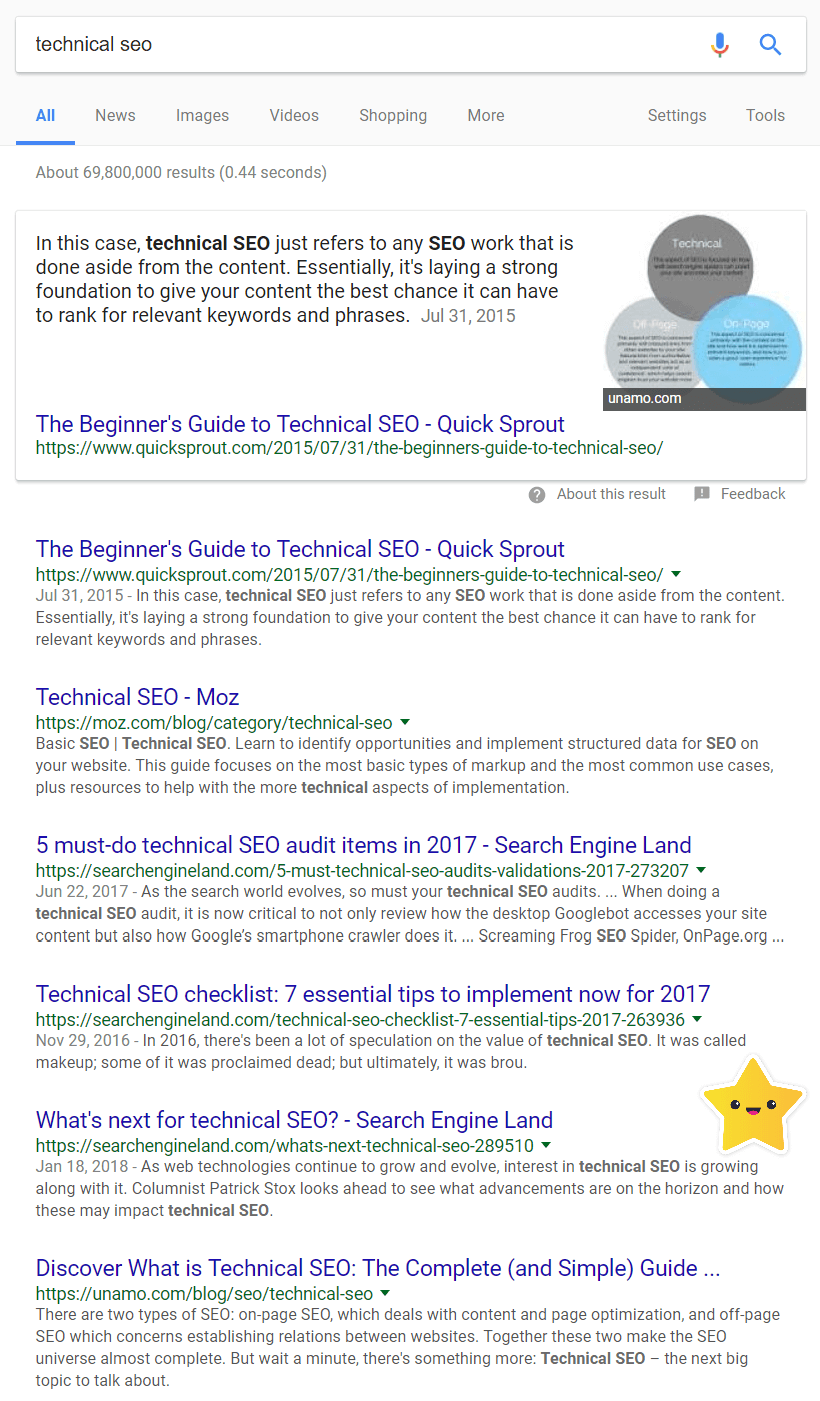What people get wrong about keyword cannibalization
Columnist Patrick Stox suggests SEOs should reconsider how they think about keyword cannibalization and look at it as an opportunity, not an issue.
 I loathe the term “keyword cannibalization.” The term reminds me of the arguments around one keyword per page.
I loathe the term “keyword cannibalization.” The term reminds me of the arguments around one keyword per page.
News flash — Pages rank for multiple keywords.
According to a study by Ahrefs last year, the average page ranking number one also ranked for about 1,000 other relevant keywords. If your content is relevant enough, you can even have multiple pages show for the same keyword.
If you’ve worked with an enterprise, you’ve likely heard discussions around keyword governance or arbitration. In many enterprise tools, you will find options to claim keywords for certain pages or certain groups.
The idea is that you don’t want pages competing against each other in the search results, and someone needs to own particular keywords. It shouldn’t matter what group you belong to, a page around a topic should put your best foot forward and showcase all that a company has to offer.
What is keyword cannibalization?
Keyword cannibalization does not really exist, at least not in the way many people think.
The common belief is that keyword cannibalization happens when multiple pages target the same keyword, compete against and hurt each other. Some people think if you have multiple pages about the same keyword, Google won’t rank any of them. I find that not to be the case.
I love the response of Google Webmaster Trends Analyst Gary Illyes when asked more about keyword cannibalization:
no clue what that is
— Gary 鯨理/경리 Illyes (so official, trust me) (@methode) January 17, 2017
What people get wrong about keyword cannibalization
I’ve heard arguments where people say having multiple pages for the same term somehow confuses search engines. This whole idea is preposterous. Search engines know what is on individual webpages.
Other people think there are times when Google shows the wrong page for a search term, but that’s not right, either. What you consider your best page for a term may not be what the search engines consider the most relevant page for the same term.
Intent is key here. If your page doesn’t have relevant information or is surrounded by informational “how to” articles or pages from Wikipedia, there is a high likelihood your pages aren’t going to show.
We know pages rank for more than one keyword, and a quick look in Google Search Console’s search analytics report will show the different terms your page ranks for.
Let’s say page A ranks for 400 different keywords, and page B ranks for 600 different keywords. Can you guess how much overlap there may be? There may be some shared keywords, but odds are the content on the page and the intent behind the two are very different. They will mostly show for different terms, or it’s possible for both of them to show for the same term.
Let’s look at an example.
My last article for Search Engine Land was What’s next for technical SEO? It was an opinion piece on the future of technical search engine optimization (SEO) and some of the technical SEO issues I see coming.
I noticed there were two articles from Search Engine Land already ranking on the first page for “technical SEO.” One was an audit, and the other was a checklist:
Based on what I see, it appears Google has determined an informational intent for the term “technical SEO.” Other pages may come into the results highlighting technical SEO jobs, specialists, tools, consulting or training, and when they do, it is likely they’ll host the same or similar keywords as the pages already ranking.
Just because my article doesn’t show for the main keyword “technical SEO,” it doesn’t mean it won’t show for other variations of the term. Search for “technical SEO advancements,” and you’ll see what I mean.
It also doesn’t mean my article doesn’t rank for the main keyword, “technical SEO.” It just means Google is showing more relevant pages for now.
Due to some filters like host crowding and domain clustering, Google will typically only show one or two results from a website unless you have multiple pages that are very relevant to a query. We can turn these filters off by appending &filter=0 to the end of the universal resource locator (URL). This will show additional pages in the consideration set.
Once we use the filter, we see Search Engine Land actually has three articles on the first page, with only two showing by default. Right now, my article is the one being filtered, but it is high in the consideration set and may eventually replace one of the other articles or be shown in addition to them.
Finding opportunities
While you could let pages fight it out and see which page ranks for a particular query, there are other options. Look at these other pages not as competing but as opportunities. By turning off the filter, as shown above, you can see which pages are in the consideration set and where they stand in the rankings.
You can wait and see if multiple pages will show or help the process along by adding additional internal links or consolidating pages where it makes sense. As long as the intent is the same and the content is similar, I’d typically go for fewer, stronger pages.
When you have multiple pages for a head term such as “technical SEO,” you may be splitting equity trying to decide which page to link to; in this case, consolidation may be best.
Contributing authors are invited to create content for Search Engine Land and are chosen for their expertise and contribution to the search community. Our contributors work under the oversight of the editorial staff and contributions are checked for quality and relevance to our readers. The opinions they express are their own.
Related stories


